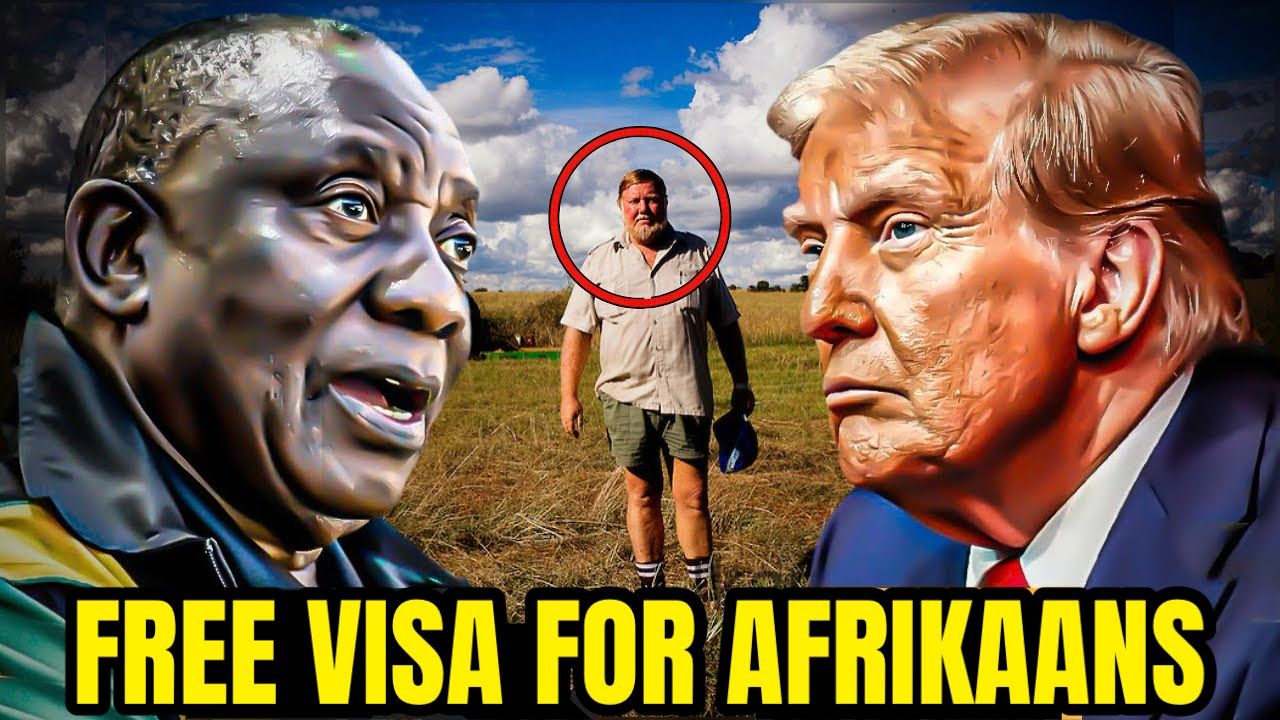When You're Accustom to Privilege, Equality Feels Like Oppression
May 15, 2025
By: A Concerned Elder of the Diaspora
I’ve lived through Jim Crow, the Civil Rights Movement, and the constant reshuffling of America’s promise to Black folks. So when I hear white South Africans—Afrikaans, as they’re called—coming to this country claiming refugee status because they feel oppressed, I get a tightness in my chest. Not from fear, but from disbelief… and truth be told, a bit of anger.
Let me talk to you plainly.
White South Africans represent less than 7% of South Africa’s population, yet still own over 72% of the land. And much of that land? Taken violently, by force and law, under colonialism and apartheid. We remember the name apartheid, even over here in the States, because it echoed the same racism we faced: a legalized system of oppression that governed where Black people could live, work, learn, and worship—all enforced by brutality.
Apartheid was officially dismantled in the early 1990s, but let’s not pretend justice came rushing in the moment Mandela walked free. South Africa has been on a long, hard journey to try to undo the generational theft of wealth and opportunity. Land reform efforts, economic redistribution, and equity programs are just a few steps the country has taken—not to punish white South Africans, but to allow Black South Africans to live with dignity and access what was stolen from them.
But now, some white South Africans—Afrikaans farmers in particular—are crying racism and persecution. They claim the South African government is targeting them, when in fact, the courts have found no evidence of widespread violence or discrimination. These are growing pains of equity, not tyranny.
And yet, under the Trump administration, these very people were offered refugee status in the United States. Yes, you read that right. People whose families benefited from systemic racism in South Africa are being welcomed into America’s arms as if they’ve survived genocide.
Let’s break that down. When these Afrikaans are accepted as refugees:
-
They are provided housing support—often placed in small towns or communities ready to "integrate" them.
-
Their children are immediately enrolled in schools.
-
They receive job placement services and work permits.
-
They may qualify for public assistance programs like food stamps or Medicaid while they get settled.
-
And within a few years, many apply for permanent residency.
Now let’s ask ourselves: Are Afghans who risked their lives to help U.S. troops being treated the same way? Are Haitian refugees escaping violence and disaster being flown into safe neighborhoods with school enrollments and job counseling?
No.
Afghans who served alongside our soldiers are still stuck in bureaucratic limbo. Many are hiding from the Taliban. Haitian families are met at the border with detention and deportation. Central American children fleeing violence are put in camps and treated like criminals. And let’s not even talk about Black immigrants from Cameroon, Ethiopia, and the Congo—many of whom are deported despite real and pressing threats to their lives.
It seems the color of your skin and your proximity to whiteness still determine whether you are “worthy” of protection. That’s not a refugee policy—it’s white preference with paperwork.
This goes against everything America claims to stand for.
We say we’re a nation of immigrants. We say we welcome the “tired, poor, huddled masses yearning to breathe free.” But the truth is, unless your struggle is easy for America to empathize with—meaning it doesn’t challenge its own racial hierarchy—you’re unlikely to be embraced.
So what can we, regular citizens, do about this?
-
Raise your voice. Contact your representatives and ask them how refugee slots are being allocated. Demand transparency about who is being let in—and who’s being left out.
-
Support refugee justice organizations like the International Rescue Committee, HIAS, or Black Alliance for Just Immigration (BAJI). These groups are working to ensure that all refugees are treated with fairness, not favoritism.
-
Talk about it. Call this what it is: inequity in policy disguised as humanitarianism. We must reject the notion that being white and uncomfortable is the same as being Black or brown and in danger.
-
Push for comprehensive immigration reform. We need laws that reflect need, not privilege. Refugee and asylum programs must be based on actual threats to safety—not discomfort with change.
To my fellow elders: we’ve seen this before. We know the game. And to the young people reading this, let me tell you—don’t be afraid to speak truth, even when it’s unpopular. Justice doesn’t arrive without a push. And sometimes, that push has to come from a voice like mine: tired, but still fighting.
To the Afrikaans families fleeing South Africa, let me be clear. You are welcome to live a life of peace. But don’t come here claiming to be victims of the very kind of reckoning your ancestors created. We’re all trying to fix the world they broke. And that requires honesty—not a reinvention of history that suits your comfort.
I have added below links that further discuss the Afrikaans "refugee" program:
Interview with Cyril Ramaphosa, President of South Africa
Interview with Rev. Sean W. Roe, presiding Bishop, Episcopal Church, ends relationship with US government immigration resettling refugees.
Signed,
An Elder Watching the Horizon
Stay connected with news and updates!
Join our mailing list to receive the latest news and updates from our team.
Don't worry, your information will not be shared.
We hate SPAM. We will never sell your information, for any reason.

